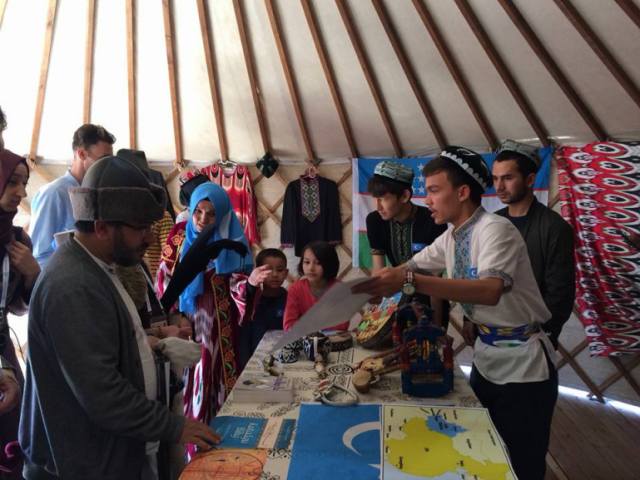Fear haunted from birth; The children of the Muslim Uighur minority in East Turkistan (Xinjiang) in China could not, even by fleeing from their homeland, overcome the feelings of fear that surround all the circumstances of their lives, so there is no fear in the motherland of going after the police if they disclose their religion, and detention in rehabilitation camps Controversial, up to the fear of returning to China, or deportation from the countries that host them as students, workers or refugees.
The majority of the 50,000 people from the Uighur minority in Turkey have obtained political asylum, according to official statistics in 2019, there are those who have obtained study visas, and others who fled via Malaysia.
Turkey is one of the countries most defending the Uighur minority, based on the relationship of kinship with which the Turkish nationalists are associated with the Chinese Uighurs, considering them an integral part of a large ethnic Turkish family extending across the border, within the geographical range known as "Eurasia", which includes countries From Europe and Asia, the Uighur minorities are spread across borders, united by Islamic religion and the language close to Turkish (one of its dialects).
The meaning of freedom
Despite the difficulty of the Uighurs' trip from China to Turkey, Sobh Nur Umar Jan - a Uyghur girl who studies Turkish literature at a university in northern Turkey - asserts that she is "deserved and desperately".
She told Al Jazeera Net that her desire to know the meaning of freedom and practicing Islamic rites motivated her to take the adventure of escaping from China to Turkey about 6 years ago.
"My trip to Turkey was difficult, it lasted for two weeks, I went first to Malaysia, and there I was able to obtain a visa for Turkey, but before my plane took off to Malaysia, the Chinese police questioned me about two hours, they wanted to know the reason why I went to Malaysia," said Subh Noor, 27. .
On the other hand, Jan indicated that the lucky Uyghurs are the ones who reside outside the territory of Xinjiang, because their place of residence allows them to obtain a visa to study or visit Turkey.
"It is very difficult for a person residing in Xinjiang to obtain a visa for Turkey, but those residing outside of it with a Chinese passport can simply travel, especially to study," she added.
The freedom that Jan knew in Turkey was expressed to Al-Jazeera Net by saying, "Here I fast freely, and I light my house lights during Iftar and Suhoor in the month of Ramadan without worry, and I pray and wear my clothes that express my religion. I did not visit a mosque in my life until I was 21 Years old, so my family agreed to come to Turkey to learn religion. "
Despite the feelings of freedom and contentment flowing from Jean's words, a deep fear hinders her enjoyment of life away from the repression of the Chinese government.
"Even after I moved to Turkey, I still feel intimidated whenever I see a policeman. I fear that they will arrest me for reasons that I do not know and return me to China. I also see in my sleep the Chinese police chasing me and plunging me into one of its camps."
Since 2017, human and press reports have continued about the detention of thousands of Uighurs by China in huge detention centers set up specifically for what Beijing calls "Uighur rehabilitation", centers that China considers "educational and educational", while Uighurs see it as "identity blanking" centers. Its presence was condemned by many human rights organizations.
bless God for us
And because fear is a common feeling among Uighurs, Aisha, 22, who studies nursing, believes that just her feeling that she will leave Turkey one day is "a reality that generates great fear."
She told Al Jazeera Net, "I came to Turkey to be able to hear the call to prayer, but every time I have a feeling that I may lose the opportunity to stay in Turkey and go there (China), then I have fear."
"My family sent me to study a field in which I can serve the children of my community and learn about the Islamic religion we belong to."
For Aisha, however, staying in Turkey is subject to the continued legal status of the country. "Just pray for us, that's all you can help us with, and if you can boycott Chinese goods, make our voice heard everywhere," she said.
Since the 1930s and 1940s, Ankara has been the most important ally of the Uighurs by trying to help the emerging state stand and continue, and Turkey has continued to this day to provide a safe haven for Uighurs fleeing ethnic persecution in China.
In 1965 Tria established a community of Uighurs in the city of Kayseri (center), where most Uighurs are stationed in Turkey now, and China has controlled the territory of East Turkistan since 1949.

